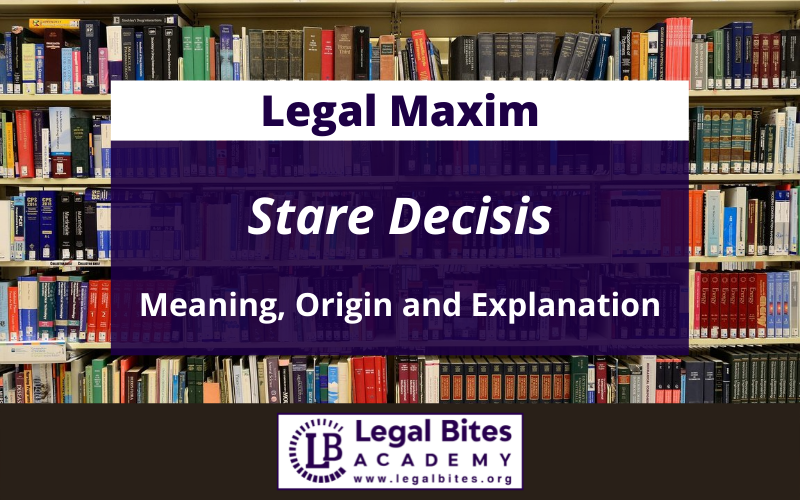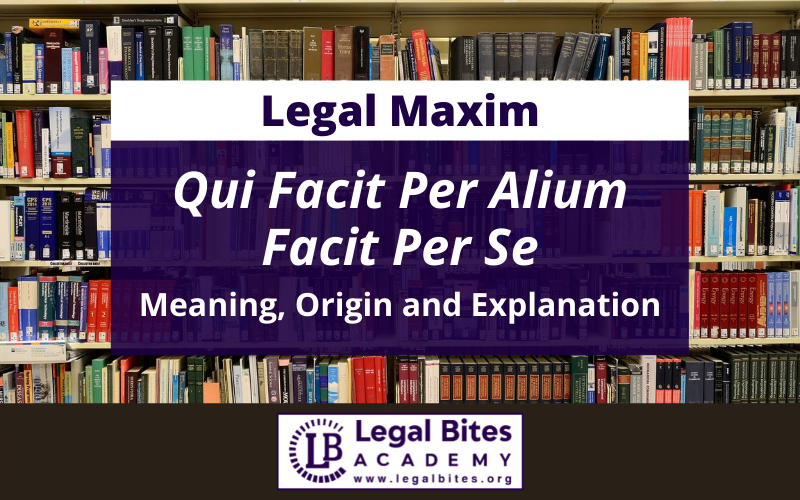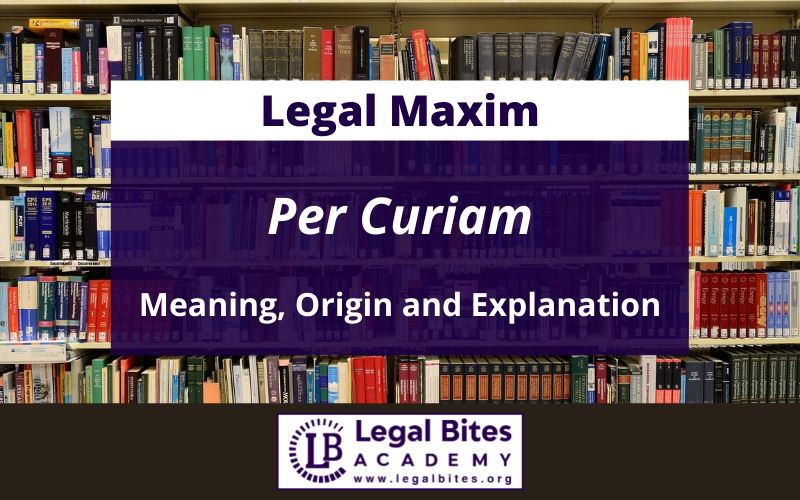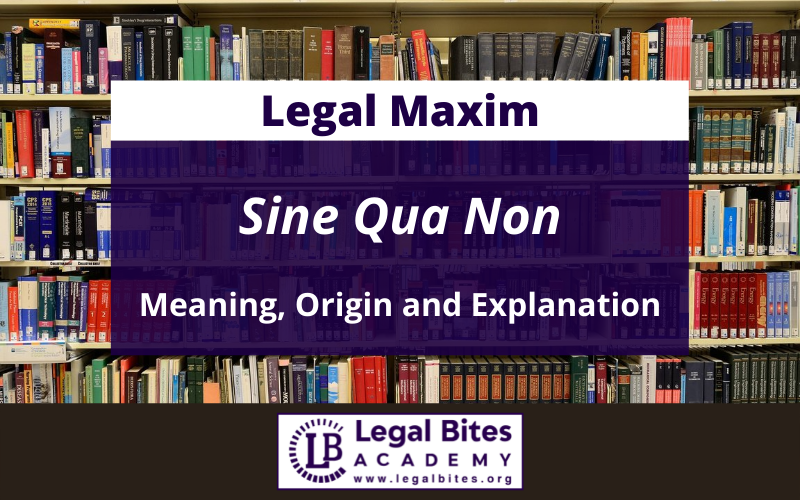Stare Decisis: Origin, Meaning and Explanation
This article titled ‘Stare Decisis: Origin, Meaning and Explanation’ is written by Sahajpreet Bhusari and discusses the maxim of Stare Decisis. I. Origin and Meaning Stare decisis is a legal maxim of Latin origin. In Latin, the maxim literally means, ‘to stand/abide by things decided’. It is also known as the doctrine of precedent[1]. II. Explanation It is a… Read More »
;
This article titled ‘Stare Decisis: Origin, Meaning and Explanation’ is written by Sahajpreet Bhusari and discusses the maxim of Stare Decisis. I. Origin and Meaning Stare decisis is a legal maxim of Latin origin. In Latin, the maxim literally means, ‘to stand/abide by things decided’. It is also known as the doctrine of precedent[1]. II. Explanation It is a theory or policy of adhering to norms or principles established in past judicial decisions unless they are...
This article titled ‘Stare Decisis: Origin, Meaning and Explanation’ is written by Sahajpreet Bhusari and discusses the maxim of Stare Decisis.
I. Origin and Meaning
Stare decisis is a legal maxim of Latin origin. In Latin, the maxim literally means, ‘to stand/abide by things decided’. It is also known as the doctrine of precedent[1].
II. Explanation
It is a theory or policy of adhering to norms or principles established in past judicial decisions unless they are inconsistent with basic justice principles.
In general, it is the idea that requires courts to follow precedent on legal issues in order to maintain certainty, consistency, and stability in the administration of justice and to avoid injustice from being repeated. It’s only a guideline or instruction, but it’s not always a rule that can’t be broken.
A precedent, which is a legal concept or rule established by a court judgement, is a collection of previous rulings. Judges will use the precedent as an example or authority when considering comparable situations in the future. As a result, the notion of stare decisis requires courts to consider precedent when making decisions.
A past decision must have practically the same question of law and almost the same facts to serve as a precedent for a present case. It lowers the necessity for retrials in situations where a higher authority/higher court of law, such as the High Court or the Supreme Court, has previously rendered a decision.
III. Application
A precedent, which is a legal concept or rule established by a court judgement, is a collection of previous rulings. Judges will use the precedent as an example or authority when considering comparable situations in the future. As a result, the notion of stare decisis requires courts to consider precedent when making decisions.
A past decision must have practically the same question of law and almost the same facts to serve as a precedent for a present case. It lowers the necessity for retrials in situations where a higher authority/higher court of law, such as the High Court or the Supreme Court, has previously rendered a decision.
IV. Case Laws
The court stated in Bengal Immunity Co. v. the State of Bihar[2] that nothing in the Constitution of India prevents the Apex Court from overturning a prior judgement if it is convinced of its inaccuracy and detrimental effect on the public interest. In terms of high courts, the decisions of a High Court are binding on all subordinate courts within the High Court’s jurisdiction.
References
[1] Stare Decisis, Available Here.
[2] Appeal (civil) 159 of 1953.





